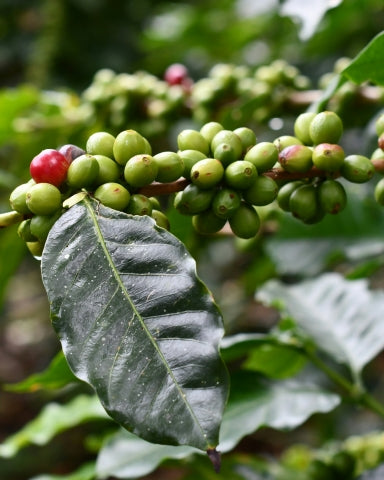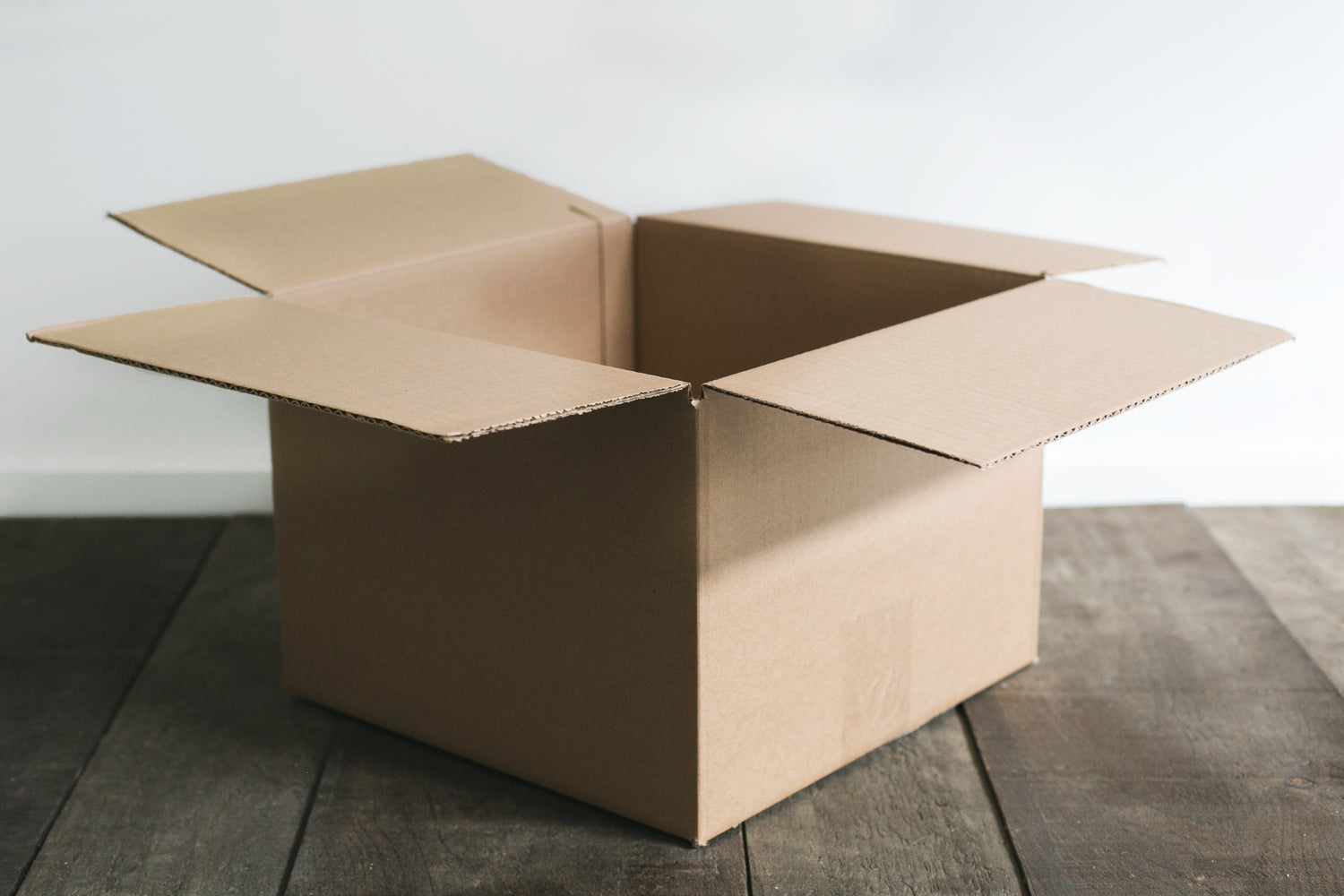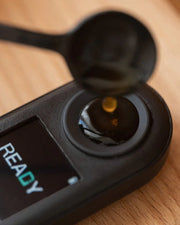7 Fun Facts About Cafe Arabica That’ll Have You Rethinking Your Morning Coffee

1. Cafe Arabica is not the only dominant species of coffee plant used by humans

We also consume Cafe Robusta.
Cafe Arabica is much more popular, but let’s not pretend that Robusta doesn’t matter… because it absolutely does! It is still widely traded, and there are a few interesting differences between Arabica and Robusta that are worth mentioning:
- Arabica was the first to be “discovered” by humans.
- Arabica makes up most of globally traded coffee today (around 75%).
- Aptly named, Robusta is taller than Arabica, and is more resistant to disease, pests, and extreme weather.
- Robusta possesses around 2x as much caffeine as Arabica.
- Arabica makes up nearly 100% of specialty coffee, and if you’re here, that is probably what you’re most interested in!
2. Cafe Arabica was (allegedly) first discovered by goats

According to a 9th century legend, there was once a goat herder named Kaldi who noticed that his goats were behaving a bit unusual after eating the bright-red berries on a nearby bush. When Kaldi consumed some for himself, he quickly discovered the stimulating effects of caffeine.
It wasn’t long until humans realized that the little bean inside the plant’s cherry could be roasted, ground up, and brewed similar to tea to create a rich, energizing elixir!
3. Upon its discovery, the Cafe Arabica Plant was abundant in one region.

Almost every coffee varietal existing today has its ancestral roots in the ancient forests Ethiopia, where the first Cafe Arabica plants likely appeared (and were chewed on by Kaldi’s goats). It was mostly here that the plant had the perfect conditions to thrive without human intervention.
Cafe Arabica would remain in its native country of Ethiopia until merchants finally took it across the Red Sea to Yemen, where it gained popularity in the Ottoman Empire.
4. People survived for a long time without Cafe Arabica.

The coffee bean is so deeply embedded throughout multiple cultures, it’s hard to imagine a past where the majority of the world had never heard of it (much less consumed it). But that past does exist, and relatively speaking, it wasn’t so long ago!
It wasn’t until hundreds of years after Cafe Arabica’s discovery – around the 16th century – that the plant gained significant popularity throughout the east. On top of that, it took another 100-200 years for Cafe Arabica to arrive in the west. To put that into perspective, William Shakespeare would have never tasted coffee, since the first coffeehouses did not reach London until 1652… 36 years after his death!
5. Cafe Arabica is believed to have helped the Age of Enlightenment

Let’s talk about the coffeehouse, which is essentially the prototype of a modern café. These establishments were already popular in the Ottoman Empire before in the 16th century, and once coffee arrived in Europe, urban coffeehouses spread like wildfire (there were as many as 500 coffeehouses in London by 1700!)
What was special about the coffeehouse in early-modern English society? Well, it replaced a very popular public gathering spot – the alehouse.
Drinking coffee instead of beer paved the way for slightly more intellectual areas of conversation, where people from all vocations gathered to discuss politics, theories, and other matters of concern. Coffeehouses were used by political groups used to plan campaigns, university students to study, and journalists to compose the local news. Some of them even spurred businesses that still operate today!
In fact, many credit coffeehouses for the Age of Enlightenment. So, next time you’re impressed with how far we’ve advanced, take a moment to thank Cafe Arabica.
6. Today, Cafe Arabica is one of the world’s most valuable traded commodities.

Coffee provides the livelihood for around 125 million people (as mentioned before, Cafe Arabica makes up most of that trade) and is a necessity for billions of consumers navigating their day-to-day lives. Often, it’s the first thing we think of in the morning, and it’s the first beverage we reach for when we hit a dreaded mid-day wall.
Coffee also takes up a significant part of our social lives. After all, whether it’s to catch up with a friend, ask someone on a date, or schedule a meeting, there is always one thing we ask first:
Would you like to get a coffee?
7. The specialty coffee industry is finding new ways to enjoy Cafe Arabica

In the early days of Cafe Arabica, the most common word used to negatively describe its taste was (and still is) bitter. To be completely fair, for a long time its flavour was not coffee’s primary selling factor.
But thanks to the rise of specialty coffee in the 21st century, we’re starting to understand that coffee can actually taste like a lot of things, many of them enjoyable.
From experimental processing methods like “carbonic maceration” to roasting techniques that accentuate the bean’s natural sweetness and acidity, the benefits of Cafe Arabica’s caffeine content are superseded by coffee that is enjoyable in the moment.
The specialty coffee industry has also supported a growing community of people – dedicated enthusiasts and professionals – who share the same passion for discovering new and exciting ways to brew and elevate coffee.
From espresso, French Press, pour-overs, and more, if you would like to brew a sample (or two) for yourself, you can discover Eight Ounce’s renowned and extensive selection of specialty coffee featuring roasters from all over the world.
One more thing...
In the context of world history, coffee has just entered into the spotlight. Although Cafe Arabica already has a long, fascinating journey, there is still plenty to discover thanks to the hard-working people (farmers, producers, roasters, baristas, etc.,) that make up our community. For them, we raise our mugs... cheers!






